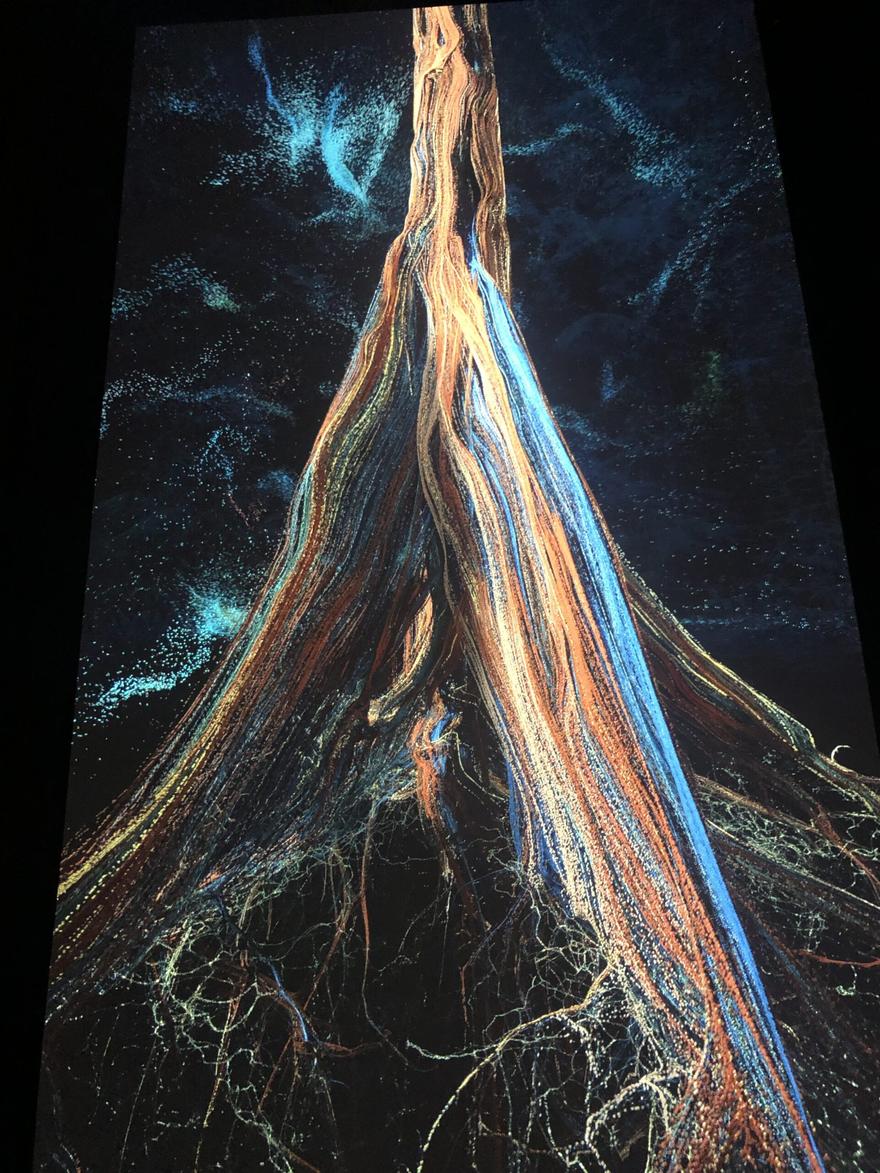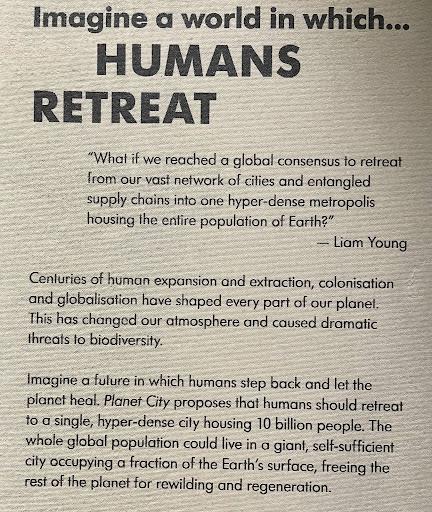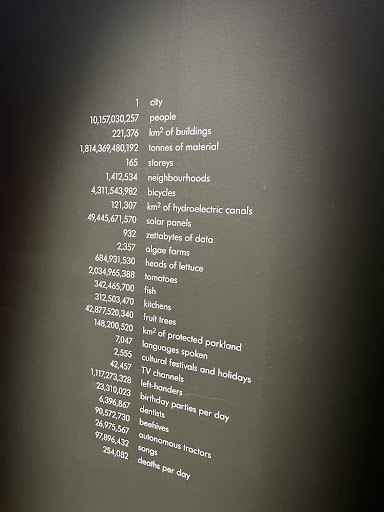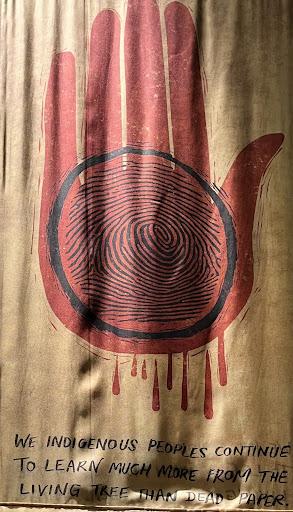'Our Time on Earth' - art exhibition reflection

This article is written by Yan Teixeira, based in Brazil, he is Gaia Educations E-learning Associate. This is a reflection on the 'Our Time on Earth' exhibition that was held at The Barbican Centre, London. Yan brings his regenerative wisdom & heart-centred systems viewpoint to reflect upon the art exhibit and the messages it shared.
The exhibition aims to immerse you in alternative ideas & perspectives on the way we live and interact with nature. It combines people from art, design, academia, activism, engineering, ecology & technology, helping to transform the conversation around the current climate emergency. So often, in urban cities, we become disconnected from the earth; we therefore lose connection, empathy, understanding and the ability to work with nature. This exhibit wants to remind us that we all belong to the same ecosystem, and our actions impact every life on this planet. It highlights the importance of living organisms and their intricate networks that help to sustain all life - systems that go unnoticed by most of us as we go about our daily lives.
City dwellers get the chance to interact with our planet via interactive installations, helping to inspire & respect our complex home - Earth.
Click here to view a short video about the exhibition from the curators.
Being in such a massive city as London for the first time can be overwhelming for some people. Especially once one starts looking with systemic lenses trying to get their head around all the systems and where/how the connections with nature are. Urban areas have so much human density and infinite intricate systems to support humans, one built after another, and the sense I experience is that more and more nature and all the other living beings are left further and further away, making the systems distant from natural systems.
Learning about Our Time on Earth exhibit at Barbican Centre brought freshness to my experience and a little bit of faith that things can still go well for life on our Planet. Feeling hopeful and inspired, I felt that I could share some of these feelings with my words
The exhibit starts with an astonishing video reminding us of the magic of nature, showing the infinite particles that compound a tree, and opens space for imagining all species that share this planet with us being composed of the same particles, breathing the same air, reminding how interconnected all these systems are, being slowly 'built' over millions of years.
"When we look with systemic lenses, we learn to see the intricate challenges around a symptom and start building resilient and regenerative actions that sustain life."
Right after, I felt a little bit at home listening to the inspiring words of Ailton Krenak (a Brazilian first nation leader, speaker and researcher) in a video questioning how we have ended up in such a situation as humanity. It's not the easy kind of video to watch, it shows how distant we are from our natural systems, building systems after systems to fulfil the emptiness that we feel from feeling separated, separated from each other, from the planet, the land...

And with that, we are invited to imagine together what it is that we can co-create from our deepest essence. What are the possibilities when our shared purpose is to build the most beautiful our heart knows is possible? Some of the ideas in the exhibition were:
- clothes being developed using fungi or bacteria as a possibility of regenerating earth instead of destroying it by extracting from plants, petroleum or animals;
- a super creative/unique study of building a city to accommodate more than 10 billion people! Look at the numbers of what that would look like:

- What do you think of it? The main goal of it is to allow Earth to regenerate itself by occupying just a tiny portion of it for a few hundred years. Doesn't it sound like a sci-fi movie to you?
- Companies/organisations focused on earth regeneration. One of the final pieces of the exhibition was many videos showing young people's actions towards earth regeneration. It really brought the feeling that we can co-create healthy possibilities for our planet!
One of the final highlights I wanted to share is the sentence "the future is ancestral" followed by many reflections on how the indigenous people have lived on earth in such a respectful/symbiotic way, bringing sacredness to their relations and actions.

Being from Brazil, the indigenous people is a very alive topic for me as I try to learn from these hugely respectful ways of being on earth. Listening to elders' stories and songs usually reminds me of the spiritual layers of my existence. Reminds me of the simplicity of my essence and the sacredness of all my relations. It has been a learning journey to integrate those things in my life, learning to unlearn, decolonize my way of thinking and build simple and true connections through life.
As part of the exhibit, many times, I noticed the aim to tackle climate change as the core of some of the actions. Although this goal motivates many initiatives, the deepest overall feeling I could get from all these approaches is that climate change is just one symptom of the many crises we face. When we look with systemic lenses, we learn to see the intricate challenges around a symptom and start building resilient and regenerative actions that sustain life.
It was a neat journey to experience all this in the Barbican centre exhibit, and I hope you could taste a little of how it was for me.


0 comments
Leave a comment